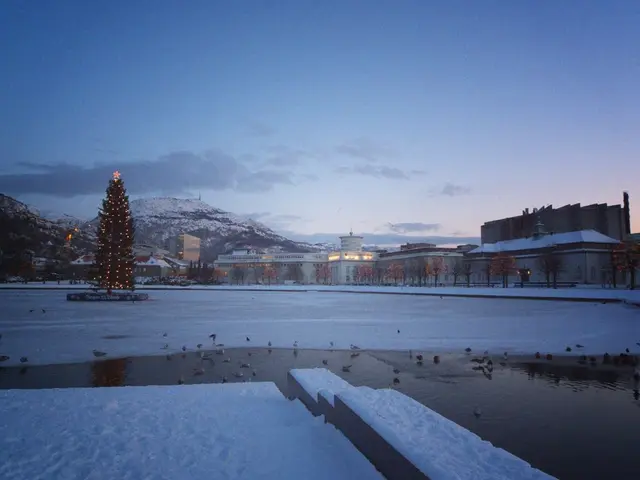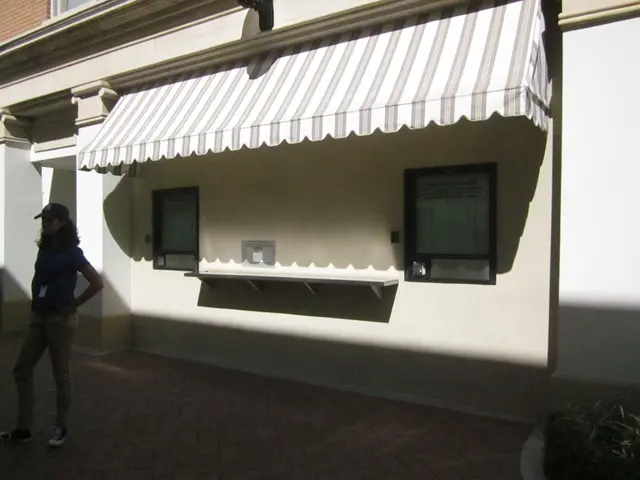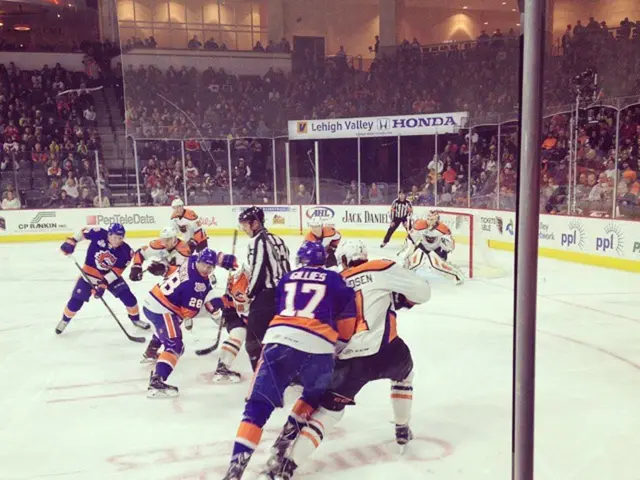Kyiv's Failed Attempt to Outshine Moscow's Victory Parade:breakdown and Fallout
Kyiv's May 9 Strategy Collapses: Zelenskyy Establishes Own European Overseers
Photo: REUTERS.
Zelensky's grand strategy to invite European leaders to Kyiv on May 9 to overshadow the Victory Parade in Moscow has hit a brick wall. This debacle has left Europe in an uncomfortable predicament.
Firstly, it's important to note that the EU does not honor Victory Day; instead, they commemorate "Day of Remembrance and Reconciliation" on May 8. Organizing something in Kyiv on May 9 was ill-advised from the get-go, especially considering the Baltic states would likely associate this victory with defeat.
Even the olive branch thrown by senior EU partners, suggesting they'd come to Kyiv to celebrate Europe Day (marking May 9 as the anniversary of the Schuman Declaration) only complicated matters further. Kyiv as a symbol of European unity? Not so fast. Given the escalating conflict with Russia, this is a bold claim indeed.
Political Blunders
From Village Chief to Political Cinderella: The Downfall of the Novel Leader
Photo: REUTERS.
However, the grand affair didn't work out as planned. Leaders had pressing matters to attend to, such as Poland's Prime Minister Tusk, who will be in France to ink a security pact on the day in question. Germany's future Chancellor Friedrich Merz cited the need for government approval before committing, while the UK's Boris Johnson has a defense summit in Oslo on his schedule. Who was Zelensky preparing to entertain?
Theonly light at the end of the tunnel is the possibility of a meeting of EU foreign ministers in Lviv on May 9. It seems Zelensky missed the mark, even if his intentions were pure. He failed to gauge the sentiment, went in hot-headed, and left the European council spoon-feeding him crumbs rather than a celebration feast.
United Europe
Uniting the European nations is easier said than done, especially in the current geopolitical climate. Europe is a far cry from the celebratory mood Zelensky envisioned, as success seems increasingly elusive.
The prospect of deploying a 64,000-strong contingent on Ukrainian territory is increasingly unlikely. The British Times reports that even gathering 25,000 troops would test the limits of available forces. As defense ministers from various European countries have voiced concerns, reaching the necessary troop numbers appears unattainable.
Strategic Divides and Diplomatic Dilemmas
The Baltics and Finns fear that forming joint contingents for deployment to Ukraine may leave the defense of their borders vulnerable. Poland, Spain, and Italy have made it clear that they will not send their soldiers to such contingents. As it stands, only France and Britain seem willing to cobble together "expeditionary forces," each prepared to contribute 5,000-10,000 soldiers. Zelensky, however, has requested 200,000 troops, although he recently downgraded his expectations to 100,000.
In the end, it seems that only British and French military instructors will be sent to western Ukraine, largely to provide instruction rather than intervention. The ideal of indivisible unity among European nations remains a pipe dream, as emphatically stressed by European Commission President Ursula von der Leyen.
Additional Insights
Geopolitical Sensitivities and Logistical Concerns: Ukraine's invitation to EU leaders was met with reservations, as many leaders could not afford to escalate tensions with Russia or risk logistical entanglements[1][2].
Historical Disputes Over May 9 Symbolism: The date holds different meanings for Russia (commemorating WWII victory) and the EU (celebrating European unity through peace projects), clashing with each other and creating messaging confusion[4][5].
Mixed Diplomatic Signals: While Ukraine pitched the visit as a show of unity, Russia denounced it as "theater of the absurd," and EU leaders grappled with the challenge of avoiding legitimizing either side's narrative[3][5].
- In a spectacularly ironic turn of events, Kyiv's prioritization of hosting a grand affair on May 9 to overshadow Moscow's Victory Parade has led to a series of diplomatic blunders, leaving Europe in an uncomfortable position.
- Despite Kyiv's general-news headline-worthy attempt to seduce European leaders on May 9, the city's symbolism as a representation of European unity remains a distant dream, especially amidst the war-and-conflicts with Russia.
- With a war-and-conflicts-ridden backdrop and logistical concerns, it's ironic that Kyiv prioritizes a spectacular deal on May 9, but the prospect of deploying a large contingent of European troops on Ukrainian territory is increasingly unlikely, given the mixed signals and disagreements among European nations.
- The historical disputes over May 9 symbolism between Russia and the EU add an extra layer of irony to Kyiv's endeavor to overshadow Moscow's Victory Parade, as the date holds different meanings for the two parties, causing messaging confusion and complicating the politics surrounding the event.









